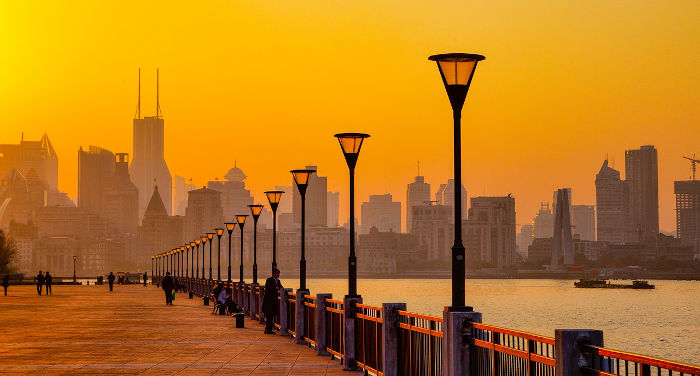Zhang Xi, a young man from Hohhot, capital of Inner Mongolia, came to Beijing three years ago and since then has always lived inside a basement room on the periphery of the city.
Young Xi, a theater and arts graduate, is forced to work as a traveling salesman and only rarely finds work in some minor shows. Xi is only one of the hundreds of thousands, or even millions of migrants from all over China that live underground, just a few meters away from a rapidly developing Beijing. This underground population has been named “The Rat Tribe” (鼠族).
These underground lodgings owe their existence to two main historical events. The first is the Cold War when, in the midst of the ideological clash between China and the Soviet Union for supremacy in the Eastern Bloc, Mao ordered the construction of underground tunnels to protect the population from Russian air raids. In this period 300.000 people took part in the campaign and 20.000 underground refuges were constructed.
After Mao’s death and with the ascent of Deng Xiaoping as China’s leader, the underground refuges were commercialized; beginning in the Eighties Beijing had 800 underground hotels along with supermarkets and cinemas. Starting in the Nineties a growing number of real estate agencies began renting these spaces, opening the way for a true real estate business.
The second event was the process of urbanization promoted by the central government that caused the abnormal growth of city residents. Beijing alone went from 9 million inhabitants in 1995 to 21 million in 2013, of which 8 million are migrants. This phenomenon increased the need for low cost housing, especially because the migrants, without possessing a local residence permit (“hukou” in chinese), were not legally allowed to move to the city.
Like many other migrants, Zhang Xi cannot look for a better lodging option and at the same time doesn’t want to depend on his parents who are already in sore economical straits. Although living at the limits of what he can support, Xi seems to be happy with his life and is convinced that these sacrifices are the price to pay to reach his dream: to become an actor with a small theatrical company and earn a few thousand Yuan in order to live a dignified life.
Nevertheless life in Beijing remains almost impossible for people such as Xi. Many residents of Beijing can’t stand migrants, who are often treated disparagingly and with hostility. Unlike the youth of Beijing’s middle class, migrants are forced to face continuous difficulty to make a few Yuan and reach their dreams. Life in Beijing and all the other large Chinese cities is extremely difficult for migrants. They are deprived of every form of social assistance and cannot count on anything outside of themselves.
The future of the “Rat Tribe” is uncertain. If in the Nineties the government recognized the potential of an underground city that would be able to accommodate the migrant population, starting from 2010 The City of Beijing’s position has profoundly changed. Each year the government increases controls and restricts regulations having to do with Beijing’s underground habitations, and the number of evicted migrants is continually increasing. The future of Xi and his “tribe” remains to be seen, but for now it looks anything but promising.
Zhang Xi’s story is the story of a dream, one that has not been broken by the numerous difficulties that life has thrown his way. The Chinese government has progressively improved living conditions for millions of migrants throughout China, but the road to bringing back up the existence of hundreds of millions of people is still very long and rough.
The reduction of restrictions on obtaining a residence permit, along with the betterment of the forms of social protection and safety standards that will facilitate the integration of migrants into the cities are a first and fundamental step for a better future for millions of people. The entire process will not be easy nor swift, but it is necessary both for the existence of the Chinese Communist Party as well as a prosperous future for China.
The process of urbanization that began in China a few decades ago has on one hand created a modern society, concentrated in the cities and involved in various sectors of agriculture, but on the other hand, has failed to promote an efficient integration system for all the new arrivals with real work opportunities in the new urban realities.
Millions of people, reluctant to live in the new cities that have risen in the west of China, migrate toward the more modern and evolved coastal zones. The main cities along the coast – among which are Beijing, Shanghai, Canton, Shenzhen – are suffocating from a constantly increasing population and a lack of adequate structures to house the new citizens.
A possible alternative could be the revitalization of the internal areas through domestic investments and the channeling of the Investments Directed Abroad (IDE) to the west of the country.
Projects like the ‘Belt & Road’ could have an enormous impact on the job market, promoting as a result the growth of all the areas included in the project. At the same time, the government will have the task of tightening the struggle against corruption so as to reduce the number of corrupt functionaries and promote the best to the central politics, where they will find less snags for their applications on a local level.
Zhang Xi, together with other millions of men and women like him belongs to a new generation of migrants. These new migrants are aware of the social injustices that they have to face every day, they are connected by means of modern forms of communication and in the future their requests will become more insistent and demanding. Dealing with these social problems should be at the top of the list of objectives for the Chinese government in order to continue on in the creation of a harmonious society.



